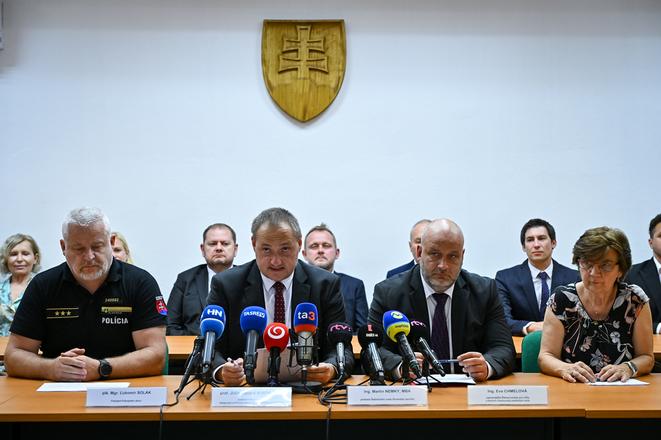Progressive Slovakia (PS), a leading pro-European opposition force led by former European Parliament deputy chair Michal Šimečka, won its second victory in the Slovak European elections on Sunday night.
The party took 27.81 percent, the State Commission for Elections and Control of Financing of Political Parties confirmed on June 9. In 2019, PS won these elections and scored 20.11 percent in alliance with the Spolu party.
Prime Minister Robert Fico’s Smer, a ruling party that formed its fourth government last October, came second, taking 24.76 percent, despite the polls published before the two-day election moratorium on June 5 indicating the party’s potential victory. The party did not shy away from exploiting a shooting incident from mid-May, in which Fico was seriously injured, in an attempt to win the European elections. Three weeks after the attack, Fico himself appeared in public via a video posted to his social media page on June 5 in hopes of helping Smer win, even though he did not specifically mention the European elections.
Regardless, the result in the European elections is a success for both PS and Smer. They each obtained two more seats. The new European Parliament will have six MEPs for PS, and five for Smer.
The far-right party Republika, led by MEP Milan Uhrík, came third with 12.53 percent, despite the fact that it is not represented in the Slovak parliament. President-elect Peter Pellegrini’s party, Hlas, finished fourth with just 7.18 percent, which is not good considering its strong position in the Slovak parliament.
Hlas took one seat, while Republika increased the number of its seats to two (Uhrík ran in the previous EP elections on the slate of the far-right party ĽSNS, left the party in 2021 and founded Republika, ed.).
The opposition Christian Democratic Movement (KDH), chaired by MEP Miriam Lexmann’s husband and Prešov Region governor Milan Majerský, scored 7.14 percent. However, the party will no longer hold two seats, as was the case in the 2019-2024 term, but only one.
The elections were a disaster for the nationalist right-wing Slovak National Party (SNS), which sits in the government with Smer and Hlas, as well as for the liberal Freedom and Solidarity (SaS), the conservative Slovakia party led by ex-premier Igor Matovič, the Hungarian minority party Alliance, and the conservative party Democrats (even though the party recorded a better result than in the parliamentary elections in 2023). None of these parties were able to secure a seat, meaning that Slovakia and SaS will no longer be represented in the European Parliament.
In Slovakia, a country with 5.5 million citizens, the turnout in the elections was high by Slovak standards: 34.38 percent. Slovakia has been notorious for having the lowest turnout in these elections. As many as 1,505,706 people cast a vote on June 8.
Fifteen MEPs from five different parties will represent Slovakia in the next term in the European Parliament, seven of them women.


 The State Commission for Elections and Control of Financing of Political Parties announces the official results of the Slovak European elections on June 9, 2024. (source: TASR)
The State Commission for Elections and Control of Financing of Political Parties announces the official results of the Slovak European elections on June 9, 2024. (source: TASR)